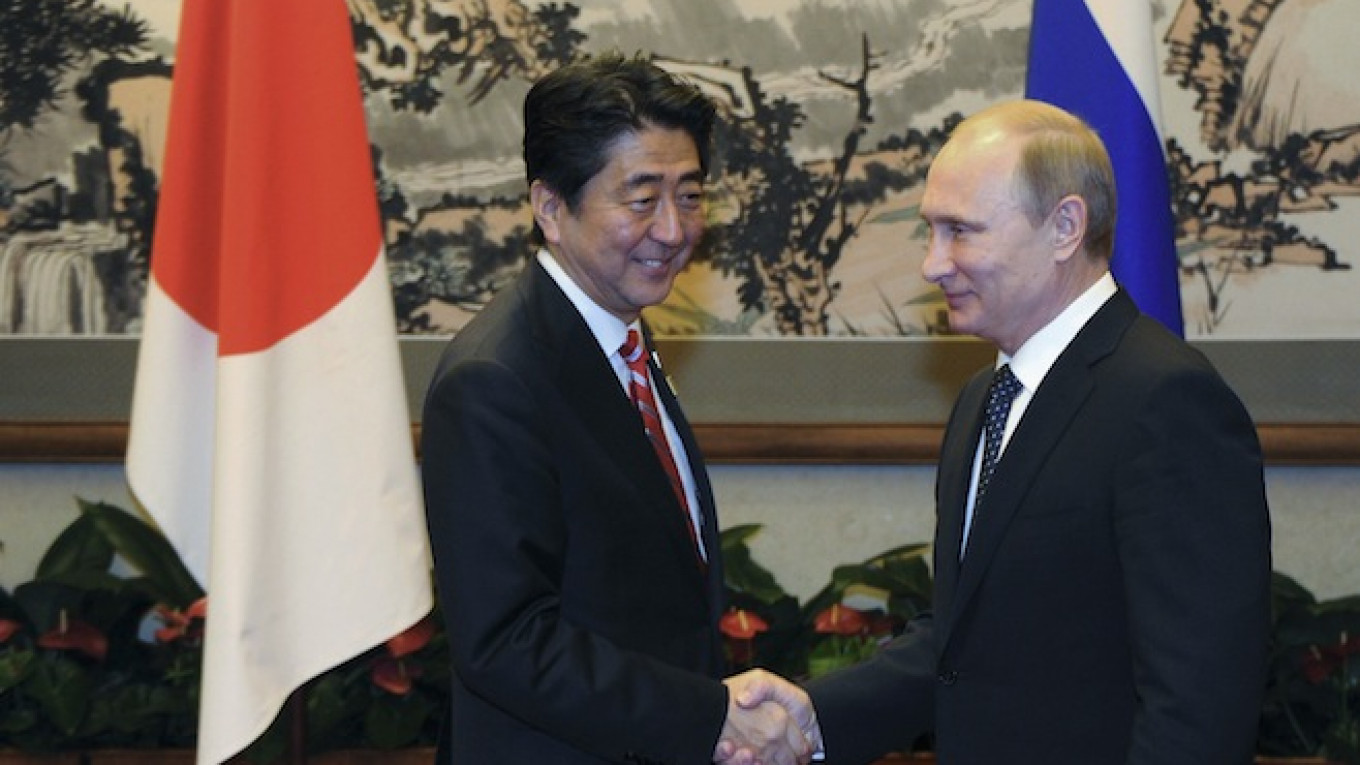BEIJING — Japanese Prime Minister Shinzo Abe has pressed Russian President Vladimir Putin to play a constructive role in ensuring that a shaky cease-fire in Ukraine holds.
In bilateral talks held Sunday on the sidelines of the Asia Pacific Economic Cooperation (APEC) leaders summit, Abe expressed concern that actions by pro-Russian separatists were complicating the situation in Ukraine, according to Japan's Deputy Chief Cabinet Secretary Katsunobu Kato.
Abe "strongly urged" Putin to play a constructive role so that both sides abide by the cease-fire agreement, he told reporters, adding that Putin responded by explaining Russia's position on the issue.
A two-month-old cease-fire in Ukraine appears shakier than ever. Ukraine's military accused Russia on Friday of sending a column of 32 tanks and truckloads of troops into the country's east to support pro-Russian separatists.
Putin and Abe, who are said to be on first-name terms, last held bilateral talks in February in Sochi, where Abe travelled to attend the opening ceremony of the Winter Olympics.
The two leaders have now agreed to begin preparations for Putin to visit Japan next year, Kato said.
Putin had planned a return visit to Tokyo in November but ties were strained after Japan, as part of a coordinated G7 move, imposed sanctions on Moscow for its annexation of the Crimea peninsula in March and its involvement in a pro-Russian rebellion in eastern Ukraine.
Moscow denies sending troops and arms to the area.
Tokyo's measures against Russia have been lighter than those of the United States or the European Union, and Abe has continued to try to court Moscow despite ties already being strained by a long-running territorial dispute.
A Message from The Moscow Times:
Dear readers,
We are facing unprecedented challenges. Russia's Prosecutor General's Office has designated The Moscow Times as an "undesirable" organization, criminalizing our work and putting our staff at risk of prosecution. This follows our earlier unjust labeling as a "foreign agent."
These actions are direct attempts to silence independent journalism in Russia. The authorities claim our work "discredits the decisions of the Russian leadership." We see things differently: we strive to provide accurate, unbiased reporting on Russia.
We, the journalists of The Moscow Times, refuse to be silenced. But to continue our work, we need your help.
Your support, no matter how small, makes a world of difference. If you can, please support us monthly starting from just $2. It's quick to set up, and every contribution makes a significant impact.
By supporting The Moscow Times, you're defending open, independent journalism in the face of repression. Thank you for standing with us.
Remind me later.






